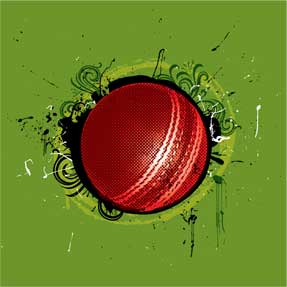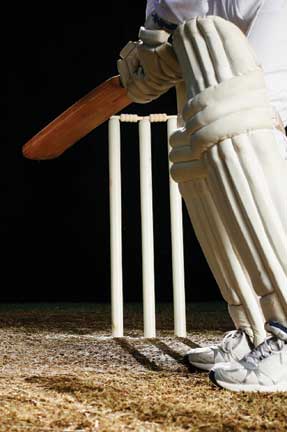Magazine
Ode to Willow
"When poetry romanced cricket" Poems through the ages have rhapsodized the true joy and spirit of this great game.
|
In 1950, Lords witnessed one of the craziest scenes ever in post-war cricket. The occasion was the historic “Windies” victory over England. The wanton ecstasy of those unforgettable moments has been etched timelessly into one of the games most memorable calypsos: West Indies first innings total
Celebrating their 1983 demolition of England (5-0) Windies song writer Lance Percival gave old favorites (Jamaican Farewell and Banana Boat Song) a whole new twist. Belted out by (former) opener Gordon Greenidge, it went: Down the way, where the skies are grey This little calypso is only one of thousands that rhapsodize the true joy and spirit of the game, inspiring some of the greatest writers with odes to the willow. The “golden age” of cricket poetry undoubtedly belonged to the 18th and 19th century. Poems of that era tossed out imaginary tales and historical ballads, which at once enhanced elements of romance. All the traditional forms of poetry came into play. Many eminent writers of “prose” paid glowing tributes to this great game, almost poetically. Irish playright Richard Brinsley Sheridan in 1776 referred in his celebrated The School For Scandal to: “The chimneys of Knightsbridge and footmen at cricket …” Thomas Hood described his young cricketers as “sportive deer.” Even the great British Poet Laureate Alfred Tennyson, for one profound moment, put aside the heavies to write: “A herd of boys with clamour bowled and stamped the wicket …” Geoffrey Chaucer mentions cricket in his immortal Canterbury Tales and Rudyard Kipling, too briefly chips in on”flannelled fools” in The Islanders. James Love, a fine poet of his day, eulogized the great game: Hail Cricket – a glorious manly British game And Lord Byron sang its praise: Together we impelled the flying ball Thomas Moult elevated cricket verse into romantic poetry. His memorable Close of Play remains a classic of that genre: For the last time a batsman is out,
G.D. Martineau is another great poet of the game, as evidenced in The Crown: Let cheers resound John Arlott, the late, great cricket writer and commentator often dazzled with his evocative and charming verse. His “ode” to the late Sir Jack Hobbs on the latter’s 80th birthday remains a gem: No yeomen ever walked his household land, Sir George Hamilton captures the game’s pride and jubilation: Where else, you ask, can England’s game be seen, As does H. Villin in Test Match: What can be the reason for the muse to be clean bowled over? The lagato-limbed charm of a leaping bowler? The fantastic magic of lightning catch? The silken elegance of fluid strokes, the serenity of the traditional pastoral setting, the high drama of a nail-biting finish or the ultimate dignity of the game? Sir Francis Meynell’s poem presents a whole new dimension with striking effect: Dazzled by dappled land and light |



You must be logged in to post a comment Login